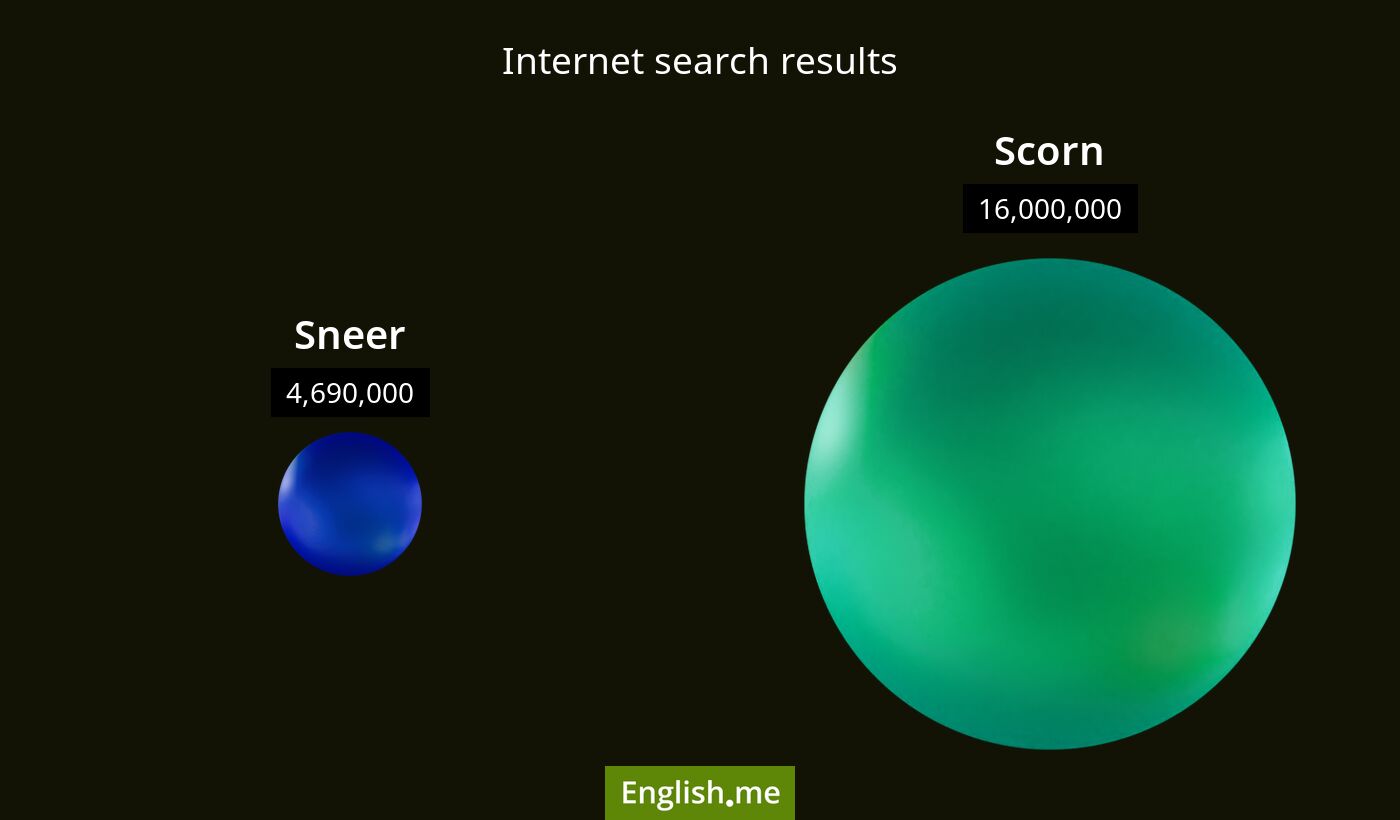Exploring contempt: the nuances of "sneer" and "scorn"
Reviewed and edited by  Lloyd Cooper 05/10/2024, 21:49
Lloyd Cooper 05/10/2024, 21:49
English.me team member

 What is similar?
What is similar?
Both "sneer" and "scorn" involve feelings of disdain or contempt towards someone or something. They are both associated with negative judgments and imply a lack of respect.
 What is different?
What is different?
A "sneer" is a facial expression or tone of voice that conveys disdain, often characterized by a slight raising of one corner of the lip. It can also be a verb meaning to express this contempt visibly or audibly. "Scorn", on the other hand, is primarily a noun that refers to the feeling or expression of contempt and disdain for someone or something. It can also be used as a verb meaning to express that contempt through words or actions, but it does not involve a specific facial expression like a sneer does.
 Which one is more common?
Which one is more common?

 Examples of usage
Examples of usage
Sneer- He sneered at the suggestion, clearly finding it ridiculous.
- Her sneer was unmistakable as she glanced at the outfit.
- The politician sneered at his opponent's proposals during the debate.
- She looked at him with scorn, deeming his excuses pathetic.
- He poured scorn on the idea, dismissing it entirely.
- The artist faced scorn from critics who did not understand her work.

 English
English español
español française
française italiano
italiano deutsche
deutsche 日本語
日本語 polski
polski česky
česky svenska
svenska Türkçe
Türkçe Nederlands
Nederlands